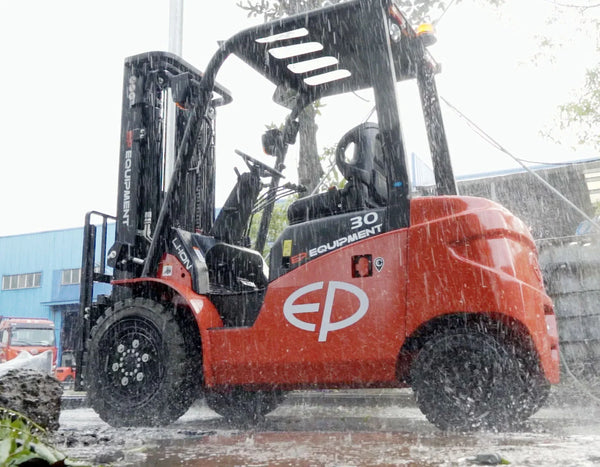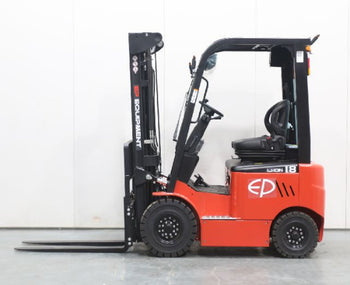When it comes to Material Handling Equipment, there are various options available, with lithium-ion and diesel forklifts being two popular contenders. In this article, we will explore the key benefits and differences between a lithium forklift vs diesel forklift.
Diesel Forklifts, CO2 Emissions and Their Impact on the Environment
Diesel forklifts operate by using an engine that runs on diesel fuel. However, this type of fuel has a negative impact on the environment due to the emission of greenhouse gases and pollutants which contribute to climate change and respiratory issues.
Lithium Powered Machinery – a Greener Future?
A lithium-ion forklift is powered by a rechargeable lithium-ion battery, which is known for its high energy density and long-lasting performance. Lithium-ion batteries do not produce harmful emissions or pollutants during operation, making it a cleaner and greener energy solution. This is why at iLift, we strongly believe lithium-ion equipment is the way forward for a greener future.
Key Differences between Lithium Forklifts vs Diesel Forklifts:
Environmental Impact: Lithium-ion forklifts are known for their eco-friendliness. They emit zero emissions during operation, as well as contributing to cleaner air and aligning with your business sustainability goals and strict environmental regulations. On the other hand, diesel forklifts release pollutants into the atmosphere, increasing air quality concerns and potential health hazards.
Did You Know: The CO2 emissions of a diesel forklift truck over a five year period is approximately 36 tonnes. Over the same time period, an electrical forklift will emit 0.99 tonnes of CO2 – a huge difference with a direct impact on the environment!
Operational Efficiency: Lithium-ion forklifts offer superior operational efficiency because of their faster acceleration and quick, precise load handling when compared to diesel forklifts. In addition, they also have a long battery life, minimising downtime for recharging or refuelling. However, diesel forklifts need regular refuelling and maintenance, which can interrupt workflows and result in additional operating costs.
Maintenance and Costs: A key advantage of lithium powered machinery, is the zero maintenance required. With no need for engine oil changes or fuel filter replacements, they offer long-term cost savings. Lithium-ion batteries have an extended lifespan, reducing the frequency of replacements. Diesel forklifts require regular servicing, fuel purchases and engine maintenance, leading to higher operating expenses over time.
Noise and Vibration: Lithium-ion forklifts operate quietly, producing minimal noise and vibrations. This feature is beneficial for indoor environments or noise-sensitive areas where diesel forklifts may cause disruptions to surrounding areas.
Flexibility and Adaptability: Lithium-ion offers great flexibility in terms of charging options. They can be opportunity-charged during breaks, allowing for shorter charging times and increased operations within your business. Diesel forklifts require refuelling at designated stations, which can be time-consuming and disrupt workflows.
Our Range of Lithium Powered Machinery
iLift offers the full range of Lithium Powered Material Handling Equipment, explore our products here to find an effective solution for all your material handling needs.










